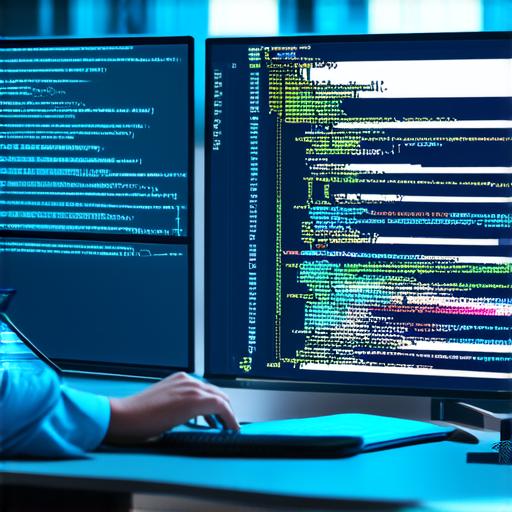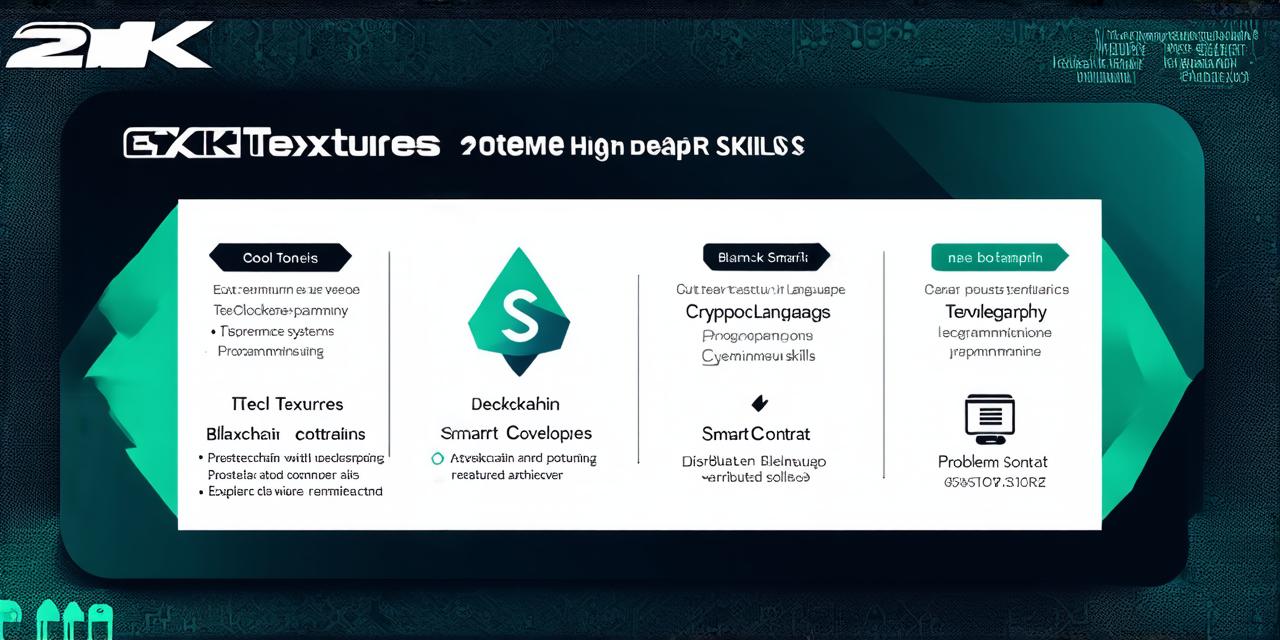
Blockchain technology is rapidly changing the world as we know it, and blockchain developers are at the forefront of this exciting revolution. With the increasing demand for blockchain experts, it’s essential to understand what skills are required to become a successful blockchain developer. In this article, we will explore the top skills required for blockchain development and provide examples of how these skills can be applied in real-world scenarios.
1. Programming Skills
The first skill required for blockchain development is programming proficiency. Blockchain technology requires a strong understanding of computer programming languages such as Solidity, Python, Java, or C++. These programming languages are used to build and maintain blockchain applications, smart contracts, and decentralized applications (DApps).
For example, Ethereum developers need to be proficient in Solidity, the primary language used for building smart contracts on the Ethereum blockchain. In contrast, Hyperledger Fabric developers require expertise in Java or Go programming languages.
Developers should also have a good grasp of data structures and algorithms to build efficient and scalable blockchain applications.
1. Cryptography
Cryptography is another essential skill for blockchain developers. Cryptography refers to the practice of securing communication and data by using mathematical algorithms and cryptographic techniques. Blockchain networks rely on cryptography to ensure secure and decentralized transactions.
For instance, Bitcoin uses elliptic curve cryptography (ECC) to secure its network from attacks. Developers should have a solid understanding of cryptographic concepts such as asymmetric encryption, hashing, digital signatures, and public-key cryptography to build secure blockchain applications.
1. Distributed Systems
Blockchain technology is based on distributed systems, which means that data is stored across multiple nodes or computers in a network. Developers should have experience working with distributed systems and understand how they work.
For example, Ripple, a payment protocol for real-time cross-border payments, uses a consensus algorithm known as RAFT (Raft Algorithm for Fast and Fault-Tolerant Distributed Systems). Developers must be familiar with distributed systems concepts such as fault tolerance, consistency, and scalability to build robust blockchain applications.
1. Smart Contract Development
Smart contracts are self-executing programs that run on the blockchain. They are used to automate transactions and enforce rules without the need for intermediaries. Developers should have experience in smart contract development to build efficient and secure blockchain applications.
For instance, ERC-20 is a standard used to create fungible tokens on the Ethereum network. Developers must understand the ERC-20 standard and have experience with smart contract development using Solidity to build successful token projects.
1. Blockchain Platform Knowledge
Developers should have knowledge of various blockchain platforms such as Bitcoin, Ethereum, Hyperledger Fabric, Corda, and others. They must understand the unique features and limitations of each platform and be able to choose the right platform for their project requirements.
For example, a developer building a supply chain application may choose Hyperledger Fabric due to its modular architecture and ability to handle large volumes of data. On the other hand, a developer building a decentralized finance (DeFi) application may choose Ethereum due to its active community and wide range of smart contract libraries.
1. Cloud Computing
Blockchain development often requires cloud computing resources such as virtual machines, containers, and serverless functions. Developers should have experience with cloud computing platforms such as Amazon Web Services (AWS), Microsoft Azure, or Google Cloud Platform to deploy their blockchain applications.
For instance, Ethereum developers can use AWS services such as EC2, EKS, or Lambda to deploy their smart contracts and DApps. Similarly, Hyperledger Fabric developers can use IBM Cloud Pak for Blockchain to deploy their applications in a secure and scalable environment.
1. DevOps Skills
DevOps is the practice of automating software development and delivery processes using tools such as continuous integration and continuous deployment (CI/CD). Blockchain development requires DevOps skills to ensure that the application is built, tested, and deployed efficiently and reliably.
For example, developers can use tools like Jenkins or CircleCI for continuous integration and testing. They can also use Docker or Kubernetes for containerization and deployment of their blockchain applications.
1. Communication Skills
Blockchain development requires excellent communication skills to work with stakeholders, explain technical concepts to non-technical team members, and collaborate with other developers. Developers should be able to communicate complex ideas in a clear and concise manner.
For instance, a developer working on a blockchain project may need to explain the technology to a business analyst or a product manager. They should be able to break down technical concepts into simple terms and provide examples to help stakeholders understand the technology better.
1. Collaboration Skills
Blockchain development is a collaborative effort that requires developers to work with other team members such as project managers, designers, and testers. Developers should be able to work effectively in a team environment and communicate their ideas clearly.
For example, a developer working on a blockchain application may need to collaborate with a designer to create an intuitive user interface. They should be able to provide feedback on the design and suggest improvements to ensure that the application meets user needs.
Summary
Becoming a blockchain developer requires a combination of technical skills, knowledge, and soft skills. Developers must have programming proficiency, cryptography expertise, distributed systems understanding, smart contract development experience, platform knowledge, cloud computing skills, DevOps experience, communication skills, and collaboration skills to build successful blockchain applications.
As the demand for blockchain experts continues to grow, it’s essential for developers to stay up-to-date with the latest technologies and best practices. Developers who possess these skills will be well-positioned to excel in their careers and contribute to the rapidly evolving world of blockchain technology.
